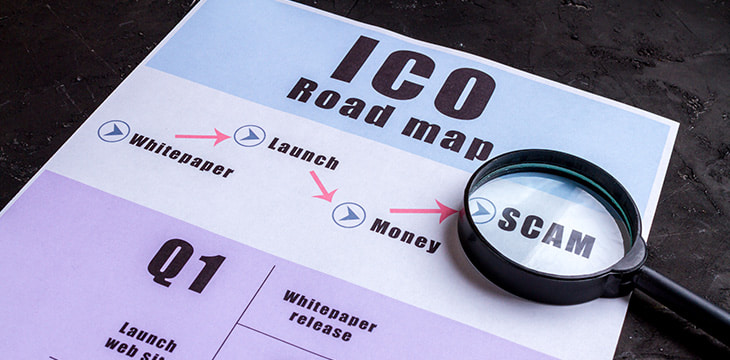|
Getting your Trinity Audio player ready...
|
Jeremy McAlpine and Zachary Matar, founders of the now defunct digital assets company Dropil, have been sentenced to U.S. federal prison for their involvement in an ICO scam that defrauded over 2,000 investors of approximately $1.9 million.
According to a Central District of California Department of Justice (DOJ) press release, McAlpine, 26, and Matar, 29, pleaded guilty to one count each of securities fraud in August 2021. McAlpine will serve a three-year sentence, while Matar’s sentence is for two and a half years.
The prosecution of the two was headed by the DOJ’s chief of Major Frauds Section, Assistant United States Attorney Ranee A. Katzenstein. In sentencing memoranda, the prosecutors argued that the defendants’ “offenses were serious and troubling.”
“They caused significant financial harm to an extremely large number of victims and entailed efforts to derail law enforcement’s attempts to root out and address wrongdoing,” it added.
Per the details of the case, the two founded Dropil in 2017, incorporating it in Belize while operating out of Fountain Valley. The company provided and managed investment in a digital token called DROPs and a digital asset automated trading “bot” called Dex that used DROPs as its native token.
The founders lured over 2000 investors into investing in their token using false claims, including falsification of the functionality and profitability of Dex, the number of investors, and volume of investment in DROPs that had purportedly already been achieved, and the value of DROPs.
The false claims were unearthed by the SEC, which opened an investigation into the company in 2020. The SEC found that Dropil raised only about $1.9 million while claiming to raise over $54 million from its 2017-2018 DROPs ICO, which sold 600 million tokens.
The two pleaded guilty to the SEC’s securities fraud charges and settled with the commission in July 2021. The SEC has also imposed a permanent injunction barring them from further fraudulent activities.
Regulators still investigating ICO-era scams
The ICO craze era of 2017 has continued to be a blight on the brief history of the digital assets industry. Per a Bloomberg report, initial coin offerings (ICO), which were highly popular during the period, are one of the reasons the digital asset market is attracting a lot of regulatory scrutiny to date.
Digital assets and blockchain startups raised billions of dollars through ICO crowdfunding during this period. But many of them went bust with investors’ funds, having never delivered on promises made or even being discovered to have made false claims.
The crimes from the era have been used to caution investors about Decentralized Autonomous Organizations (DAOs) as well.
Watch: The BSV Global Blockchain Convention panel, Law & Order: Regulatory Compliance for Blockchain & Digital Assets
https://www.youtube.com/watch?v=R58jiNcC5mA&feature=youtu.be

 02-13-2026
02-13-2026 




